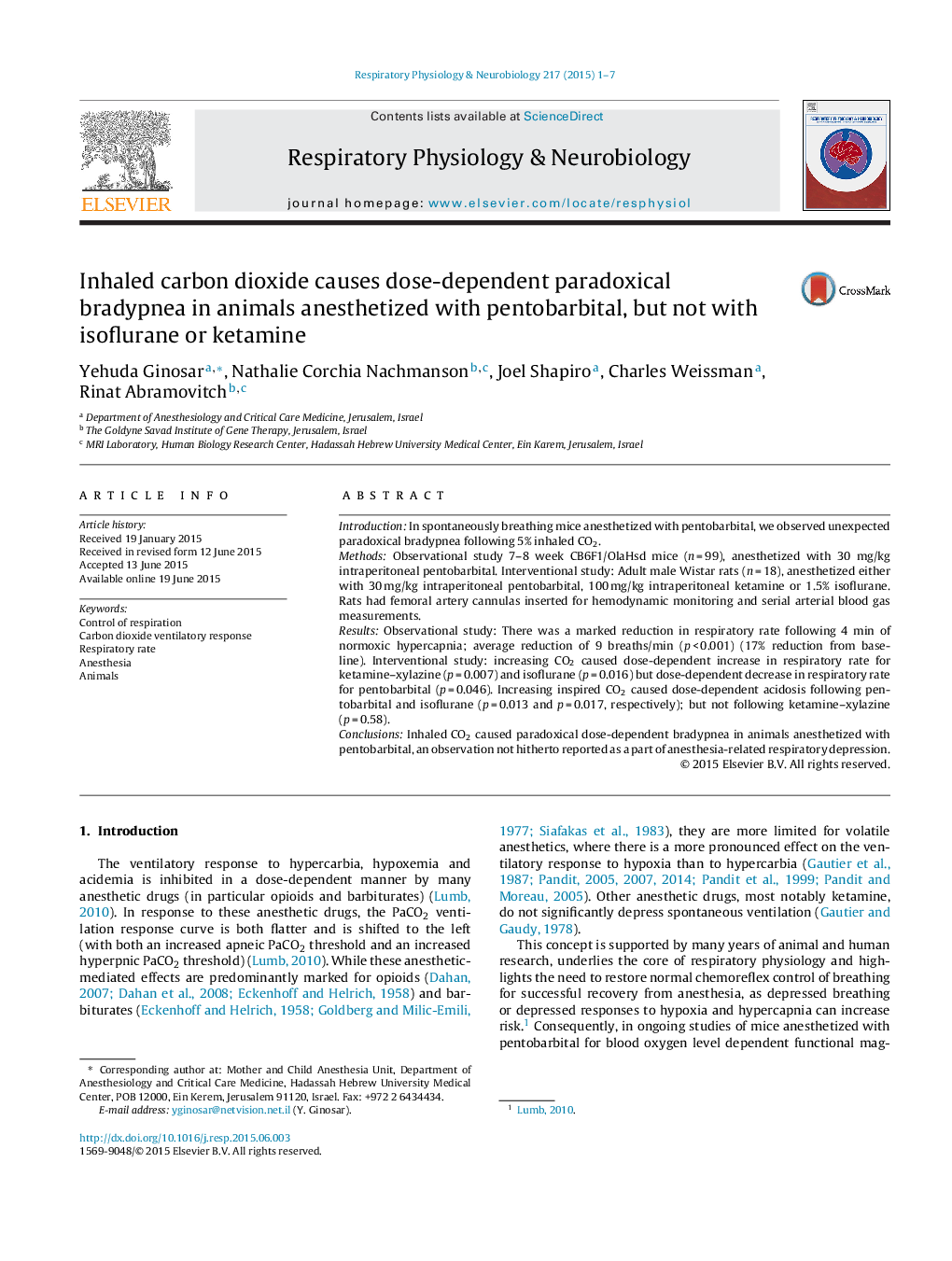| Article ID | Journal | Published Year | Pages | File Type |
|---|---|---|---|---|
| 2846808 | Respiratory Physiology & Neurobiology | 2015 | 7 Pages |
•In observational data, inspired CO2 induced paradoxical bradypnea in spontaneously breathing mice anesthetized with pentobarbital.•We performed a CO2-dose-response study in rats with pentobarbital, ketamine and isoflurane anesthesia.•CO2 induced CO2-dependant, paradoxical bradypnea with marked respiratory acidosis in rats anesthetized with pentobarbital.•CO2 induced tachypnea with minimal change in arterial blood gases in rats anesthetized with ketamine.•Paradoxical bradypnea induced by normoxic hypercapnia may contribute to the respiratory depressant effect of barbiturates.
IntroductionIn spontaneously breathing mice anesthetized with pentobarbital, we observed unexpected paradoxical bradypnea following 5% inhaled CO2.MethodsObservational study 7–8 week CB6F1/OlaHsd mice (n = 99), anesthetized with 30 mg/kg intraperitoneal pentobarbital. Interventional study: Adult male Wistar rats (n = 18), anesthetized either with 30 mg/kg intraperitoneal pentobarbital, 100 mg/kg intraperitoneal ketamine or 1.5% isoflurane. Rats had femoral artery cannulas inserted for hemodynamic monitoring and serial arterial blood gas measurements.ResultsObservational study: There was a marked reduction in respiratory rate following 4 min of normoxic hypercapnia; average reduction of 9 breaths/min (p < 0.001) (17% reduction from baseline). Interventional study: increasing CO2 caused dose-dependent increase in respiratory rate for ketamine–xylazine (p = 0.007) and isoflurane (p = 0.016) but dose-dependent decrease in respiratory rate for pentobarbital (p = 0.046). Increasing inspired CO2 caused dose-dependent acidosis following pentobarbital and isoflurane (p = 0.013 and p = 0.017, respectively); but not following ketamine–xylazine (p = 0.58).ConclusionsInhaled CO2 caused paradoxical dose-dependent bradypnea in animals anesthetized with pentobarbital, an observation not hitherto reported as a part of anesthesia-related respiratory depression.
